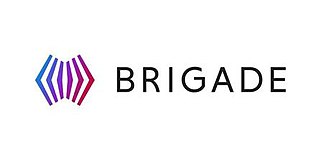E-government is the use of technological communications devices, such as computers and the Internet, to provide public services to citizens and other persons in a country or region. E-government offers new opportunities for more direct and convenient citizen access to government and for government provision of services directly to citizens.

E-democracy, also known as digital democracy or Internet democracy, uses information and communication technology (ICT) in political and governance processes. The term is credited to digital activist Steven Clift. By using 21st-century ICT, e-democracy seeks to enhance democracy, including aspects like civic technology and E-government. Proponents argue that by promoting transparency in decision-making processes, e-democracy can empower all citizens to observe and understand the proceedings. Also, if they possess overlooked data, perspectives, or opinions, they can contribute meaningfully. This contribution extends beyond mere informal disconnected debate; it facilitates citizen engagement in the proposal, development, and actual creation of a country's laws. In this way, e-democracy has the potential to incorporate crowdsourced analysis more directly into the policy-making process.

A hackathon is an event where people engage in rapid and collaborative engineering over a relatively short period of time such as 24 or 48 hours. They are often run using agile software development practices, such as sprint-like design wherein computer programmers and others involved in software development, including graphic designers, interface designers, product managers, project managers, domain experts, and others collaborate intensively on engineering projects, such as software engineering.

Civic engagement or civic participation is any individual or group activity addressing issues of public concern. Civic engagement includes communities working together or individuals working alone in both political and non-political actions to protect public values or make a change in a community. The goal of civic engagement is to address public concerns and promote the quality of the community.
mySociety is a UK-based registered charity, previously named UK Citizens Online Democracy. It began as a UK-focused organisation with the aim of making online democracy tools for UK citizens. However, those tools were open source, so that the code could be redeployed in other countries.
Google Developers is Google's site for software development tools and platforms, application programming interfaces (APIs), and technical resources. The site contains documentation on using Google developer tools and APIs—including discussion groups and blogs for developers using Google's developer products.
Open government is the governing doctrine which maintains that citizens have the right to access the documents and proceedings of the government to allow for effective public oversight. In its broadest construction, it opposes reason of state and other considerations which have tended to legitimize extensive state secrecy. The origins of open-government arguments can be dated to the time of the European Age of Enlightenment, when philosophers debated the proper construction of a then nascent democratic society. It is also increasingly being associated with the concept of democratic reform. The United Nations Sustainable Development Goal 16 for example advocates for public access to information as a criterion for ensuring accountable and inclusive institutions.
Social media measurement, also called social media controlling, is the management practice of evaluating successful social media communications of brands, companies, or other organizations.
Ushahidi is an open source software application which utilises user-generated reports to collate and map data. It uses the concept of crowdsourcing serving as an initial model for what has been coined as "activist mapping" – the combination of social activism, citizen journalism and geographic information. Ushahidi allows local observers to submit reports using their mobile phones or the Internet, creating an archive of events with geographic and time-date information.

The term digital citizen is used with different meanings. According to the definition provided by Karen Mossberger, one of the authors of Digital Citizenship: The Internet, Society, and Participation, digital citizens are "those who use the internet regularly and effectively." In this sense, a digital citizen is a person using information technology (IT) in order to engage in society, politics, and government.

Wix.com Ltd. is an Israeli software company, publicly listed in the US, that provides cloud-based web development services. It offers tools for creating HTML5 websites and mobile sites using online drag-and-drop editing. Along with its headquarters and other offices in Israel, Wix also has offices in Brazil, Canada, Germany, India, Ireland, Japan, Lithuania, Poland, the Netherlands, the United States, Ukraine, and Singapore.
Open data in Canada describes the capacity for the Canadian Federal Government and other levels of government in Canada to provide online access to data collected and created by governments in a standards-compliant Web 2.0 way. Open data requires that machine-readable should be made openly available, simple to access, and convenient to reuse. As of 2016, Canada was ranked 2nd in the world for publishing open data by the World Wide Web Foundation's Open Data Barometer.
Citizen sourcing is the government adoption of crowdsourcing techniques for the purposes of (1) enlisting citizens in the design and execution of government services and (2) tapping into the citizenry's collective intelligence for solutions and situational awareness. Applications of citizen sourcing include:
The OpenGov Foundation is a United States nonpartisan, nonprofit organization. It conducts research on legislatures like the United States Congress, develops software for government officials, and claims to help governments create policies and rules that support openness and effective engagement with the public.
Civic technology, or civic tech, enhances the relationship between the people and government with software for communications, decision-making, service delivery, and political process. It includes information and communications technology supporting government with software built by community-led teams of volunteers, nonprofits, consultants, and private companies as well as embedded tech teams working within government.

The Microsoft Garage is a Microsoft program that encourages employees to work on projects about which they are passionate, despite having no relation to their primary function within the company. Employees from all divisions of Microsoft are free to take part in Microsoft Garage activities and small-scale innovation projects. The Microsoft Garage is a global program with locations on the main campus in Redmond, Washington, and several others spread all over the world, and a website that launched in October 2014 to share experimental projects with customers.
Politics and technology encompasses concepts, mechanisms, personalities, efforts, and social movements that include, but are not necessarily limited to, the Internet and other information and communication technologies (ICTs). Scholars have begun to explore how internet technologies influence political communication and participation, especially in terms of what is known as the public sphere.
Crowdmapping is a subtype of crowdsourcing by which aggregation of crowd-generated inputs such as captured communications and social media feeds are combined with geographic data to create a digital map that is as up-to-date as possible on events such as wars, humanitarian crises, crime, elections, or natural disasters. Such maps are typically created collaboratively by people coming together over the Internet.

Brigade Media, also known as Brigade, was a civic technology platform that was formed on June 4, 2014, and founded by James Windon, Jason Putorti, John Thrall, Matt Mahan, and Miche Capone. The platform was intended to help users connect with others who share the same or similar views and to voice their opinions, create debates, or organize petitions. This process was intended to make the users' concerns more visible to and influential towards the United States policymakers. In early 2019 the engineering team at Brigade was acqui-hired by Pinterest. The remaining company assets and IP, including the Causes assets, were purchased by GovTech app Countable.
Accela is an American private government technology company. It was established in 1999 as a result of a merger with Sierra Computer Systems and Open Data Systems. Accela's platform is used by state and local government agencies in the United States and in other countries.







